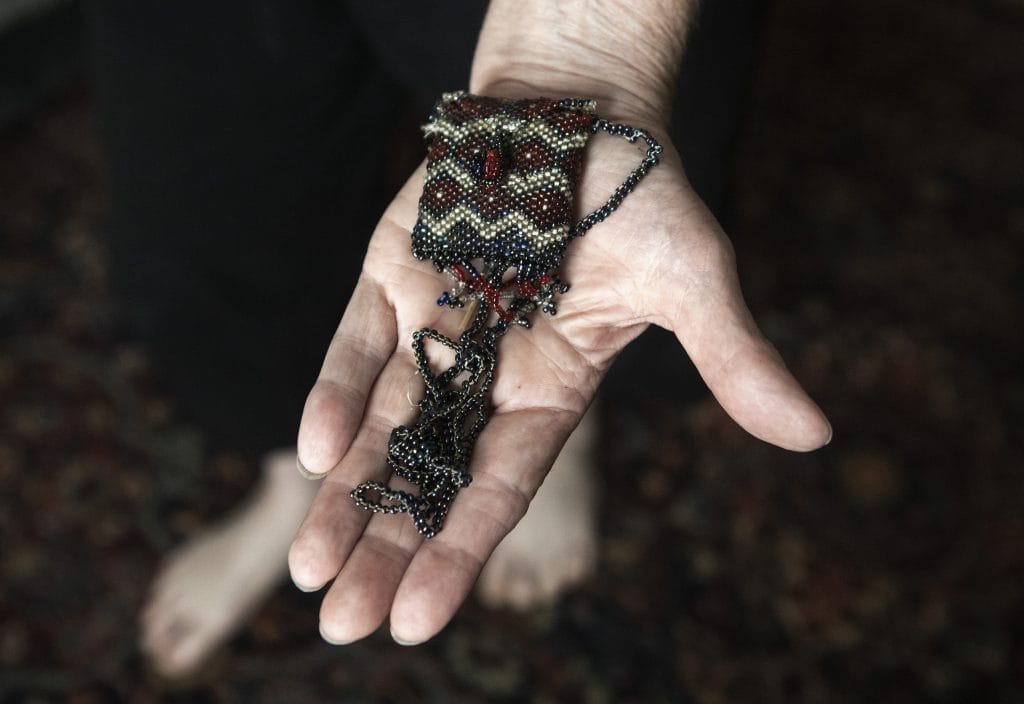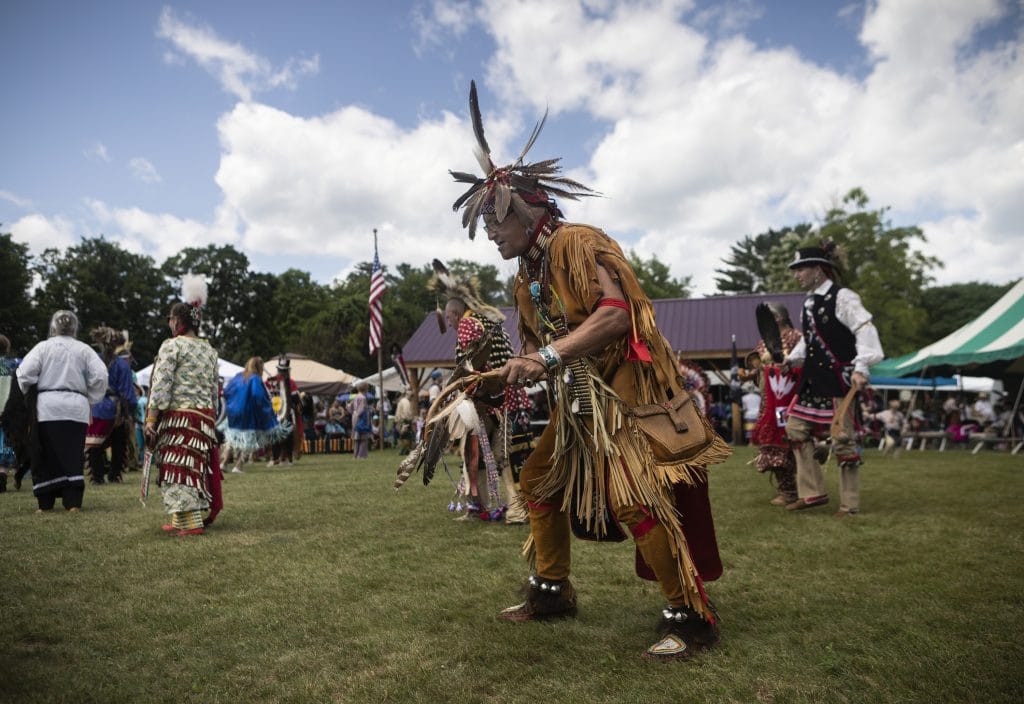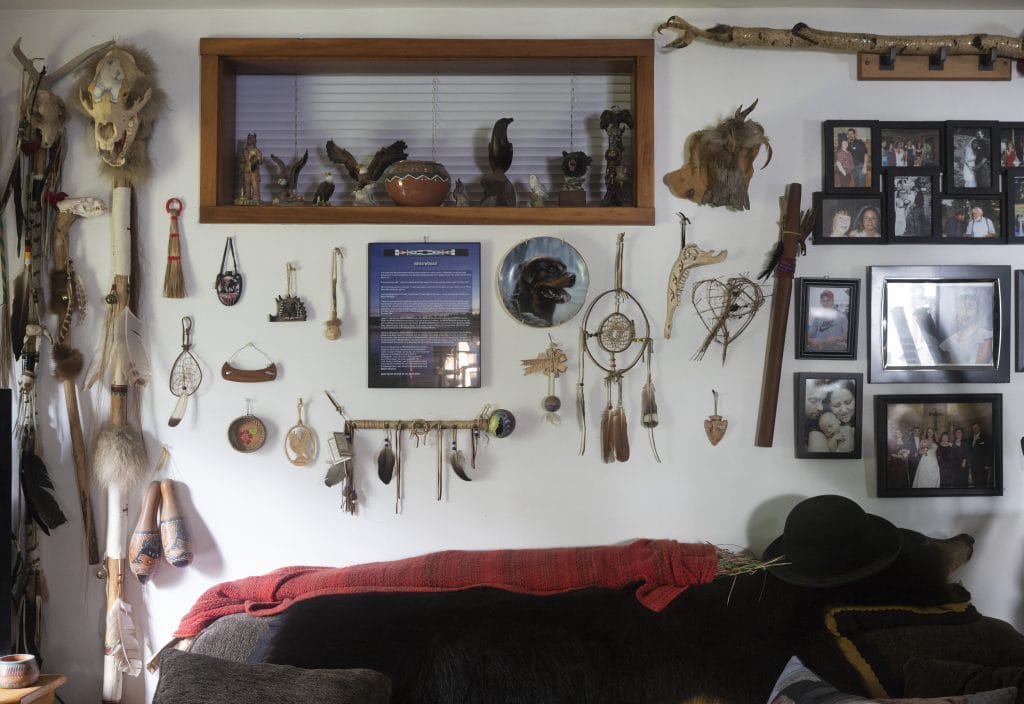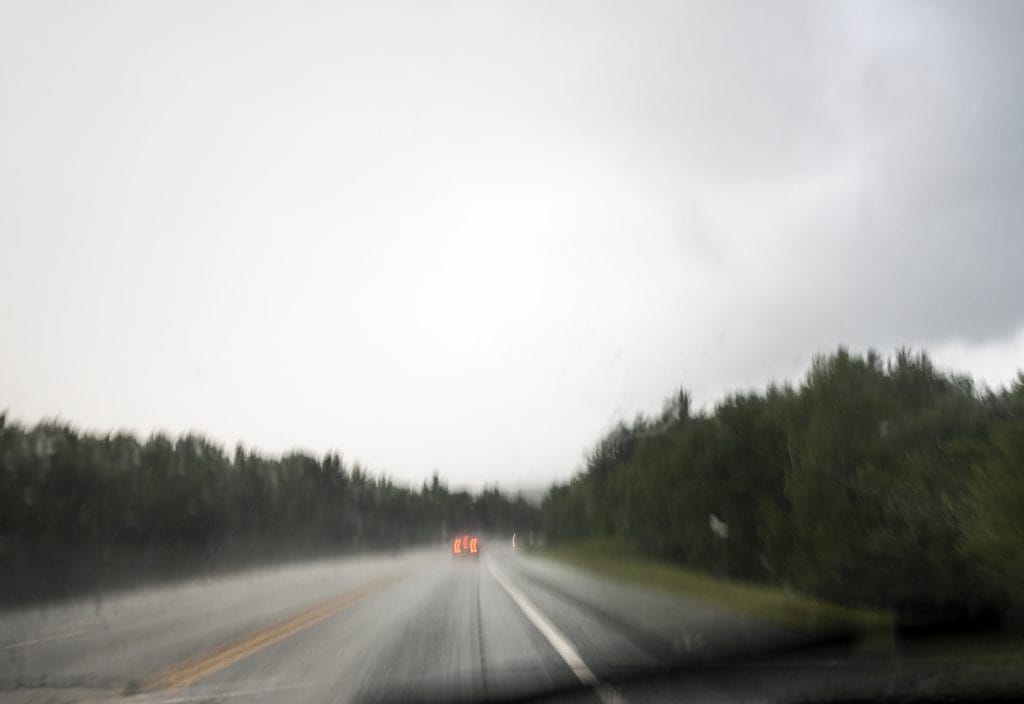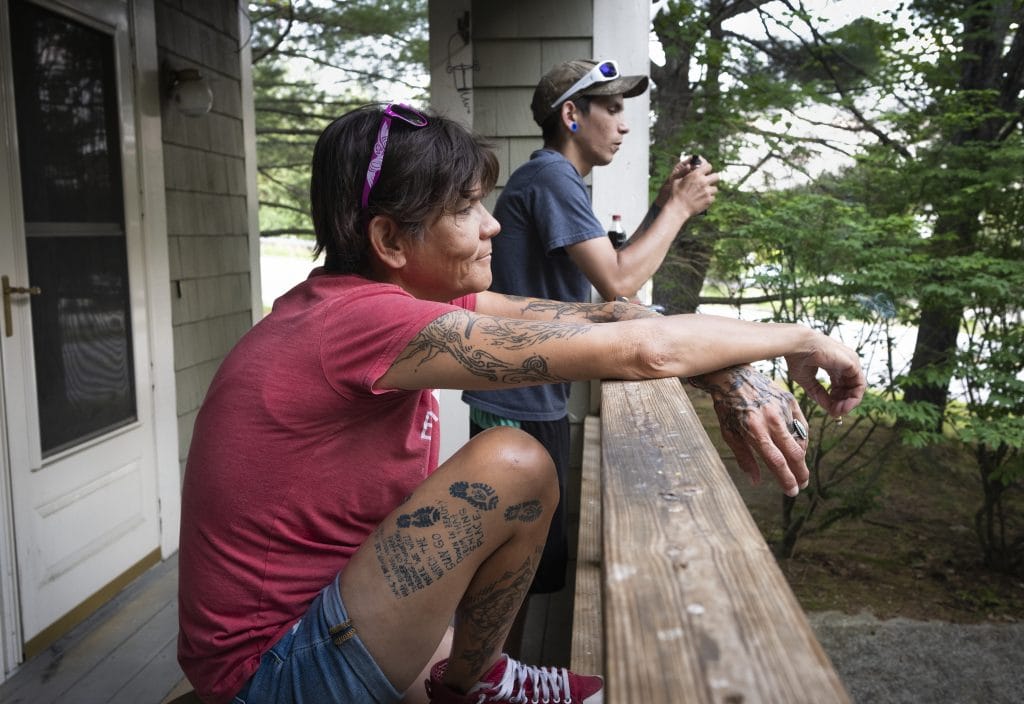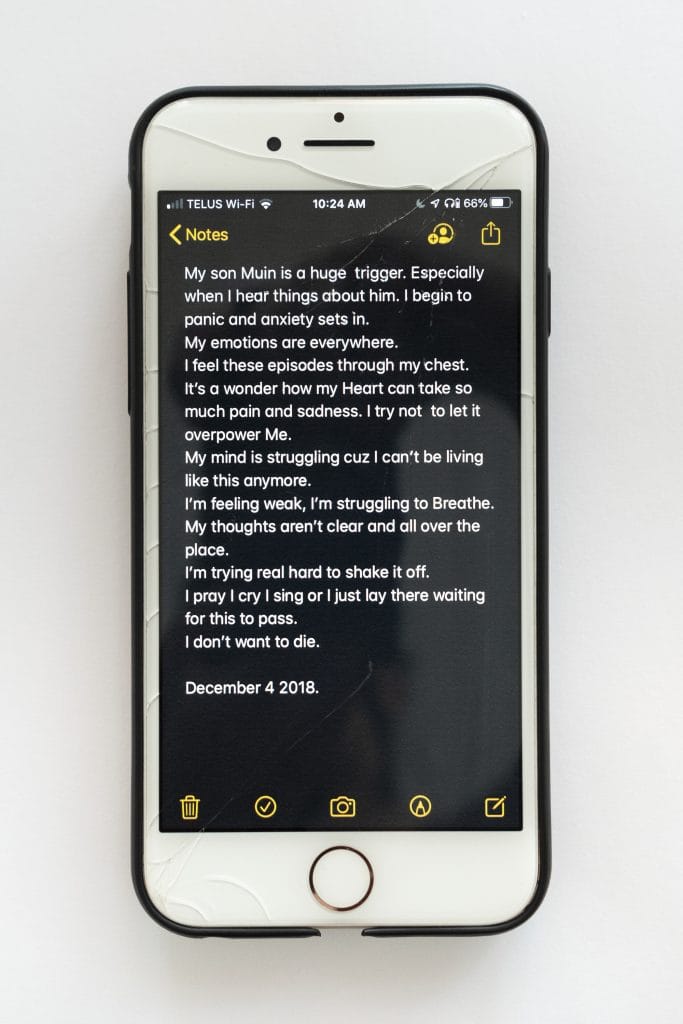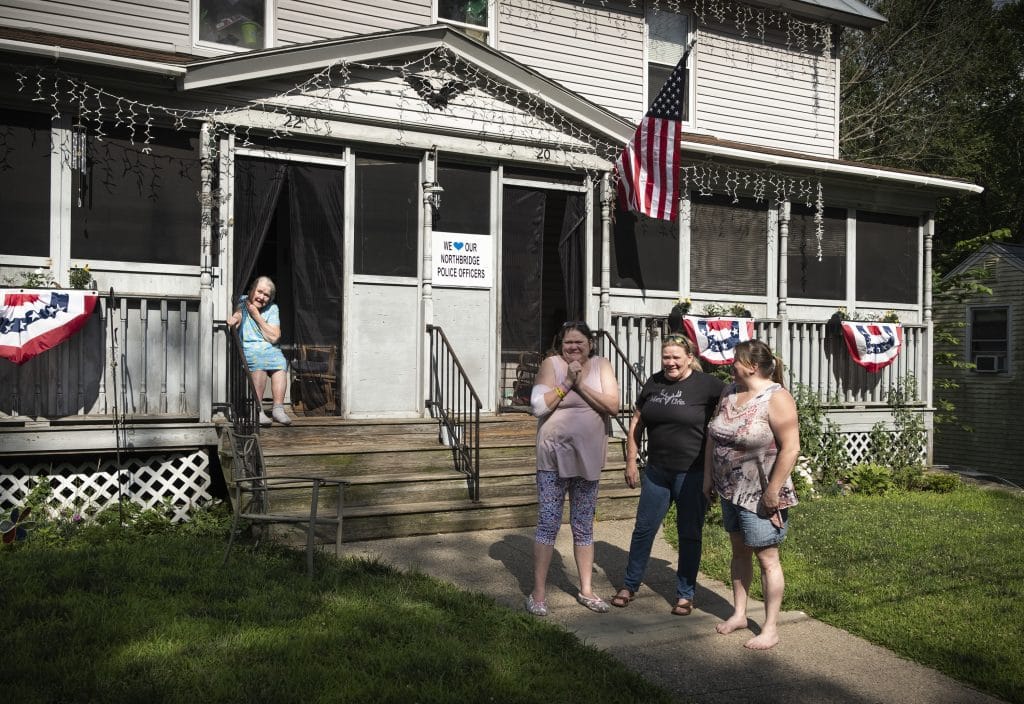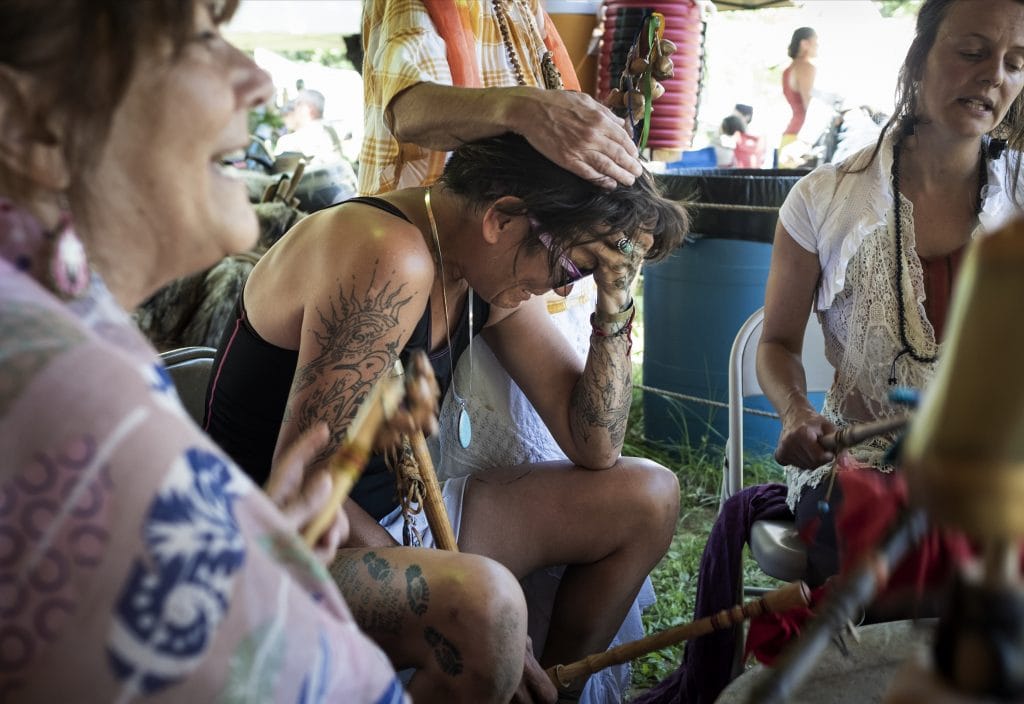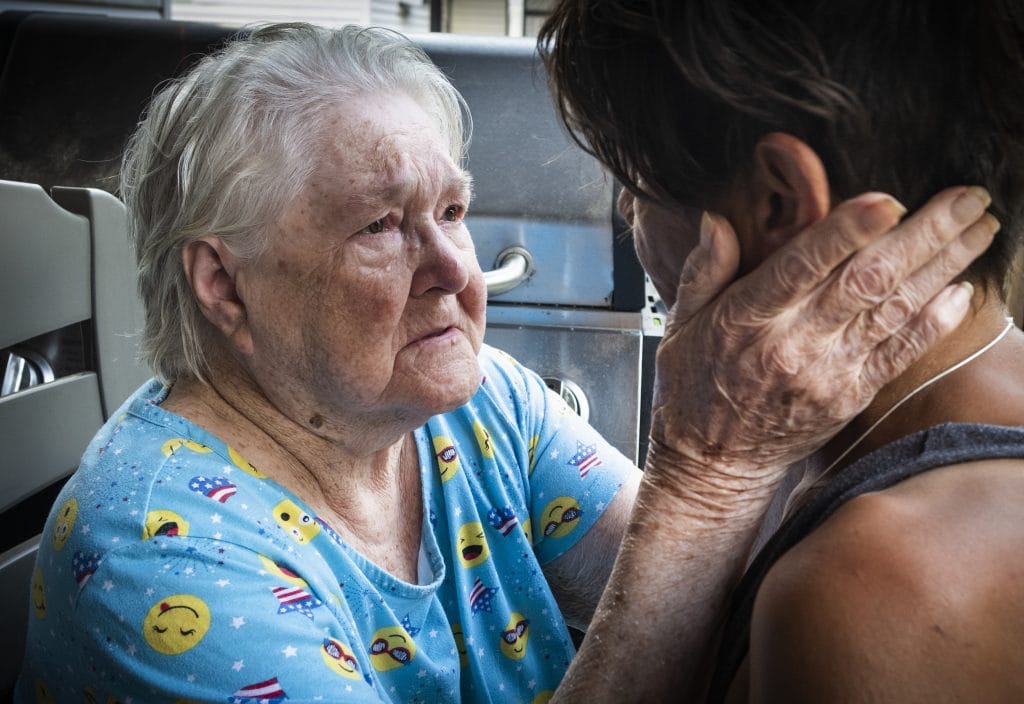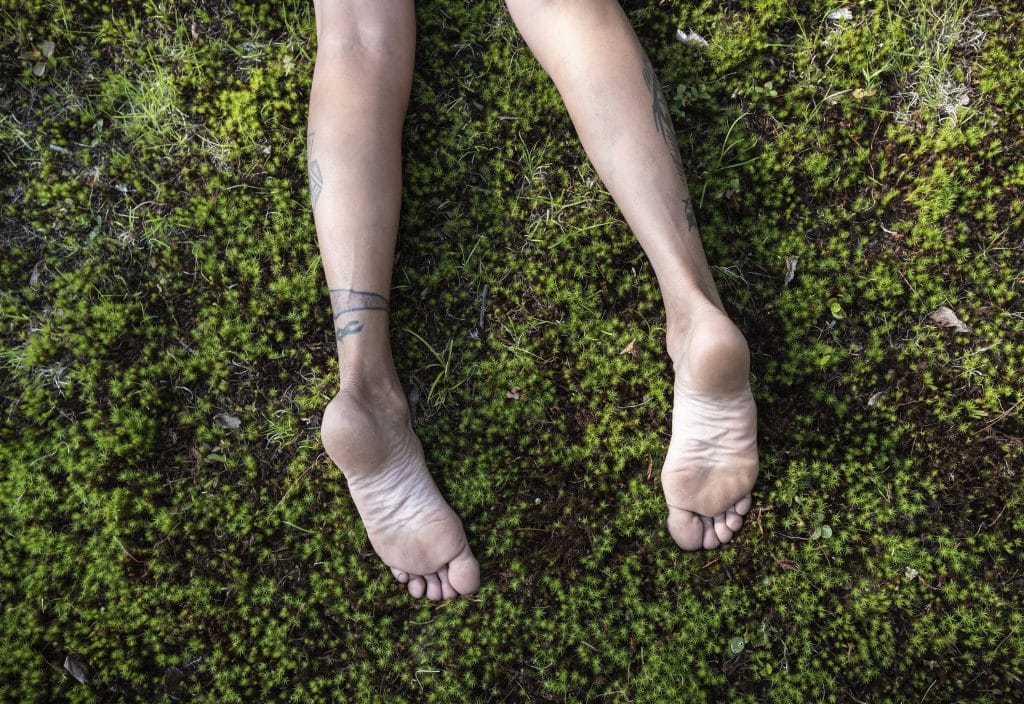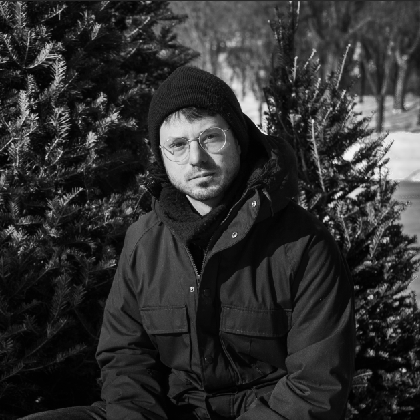Where do I want to belong now? A question just as existential as the crisis that gave rise to it.
It is this questioning, a quest for oneself and one’s place in the world, that is at the center of Émilie Couture’s work presented as part of the Zoom Photo Festival. She tells the story of Darlene’s healing journey, born in the Mi’gmaq community of Gesgapegiag, who lived and raised her children in the United States.
After her return to Quebec in 2012, she works as an intervener with the youth of Gesgapegiag to help them regain their identity through traditional practices.
The traumas of the past are intertwined with a series of unfortunate events such as the mental illness of her youngest son caused by drug use and the fire of his house in March 2019. The loss of her job and the lack of support from her family and community intensifies the symptoms of the post-traumatic shock she has been suffering from for a long time. The situation plunges her into severe depression.
In March 2019, she contacted the photographer Émilie Couture to invite her to accompany her on a trip to the United States: “She was completely upset, angry and destitute. She explained to me what was happening to her. She told me that she wanted to go on a healing trip to the United States to see the places and people who saw her grow up… She needed to get away from her community. »
They leave together and spend a few days with Darlene’s eldest son and then visit one of her great friends, an 82-year-old woman. That’s when she realized she needed treatment and decided to return to Canada.
If these few days on the road can evoke a Road Movie, Darlene’s story told by Émilie evokes above all her desire to live and the importance of belonging.
“Darlene, in all that she is, represents the reality of First Nations, of communities living on reserves, the historical trauma, the impacts of these traumas that are still there today, the difficulty of getting out of these situations and the desire to change things that comes from the communities themselves. The changes will come through the actors of these communities. They are the ones who will put in place the means to get out of these situations.
What is important in this work is not only the culture that is shown, but also how the return to this culture and its re-appropriation by the members of these communities can be a vector of change.
This change is what the photographer wants to show through the continuation of this collaboration with Darlene. The latter contributes today to the transmission of ancestral knowledge to the new generations of Gesgapegiag. In short, it is a collective work to rediscover one’s personal and community identity.
If documentary photography is often presented as a work outside of the phenomenon it tries to explain, Émilie Couture’s report shows to what extent an integrated approach can become a deep collaboration and a common discourse blurring the boundaries between author and protagonist.


